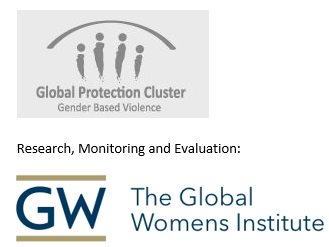- The core guiding principles of safety, respect, confidentiality and non-discrimination (see table below) apply to all VAWG programming and coordination efforts in conflict and post-conflict situations and must be considered in all decisions made, from the policy level to the delivery of services for individual survivors.
|
Guiding principle |
Definition |
|
Safety |
The safety and security of the survivor and others, such as her children and people who have assisted her, are very important. Individuals who disclose an incident of gender-based violence or a history of abuse may be at risk of further violence from the perpetrator(s) or from others in their communities. The ONLY time confidentiality should be breached is when there is imminent risk to the survivor or the VAWG worker. |
|
Confidentiality |
Maintaining confidentiality means not disclosing any information at any time to any party without the informed consent of the survivor. |
|
Respect |
The survivor is the primary actor, and the role of helpers is to facilitate recovery and provide resources for problem-solving. The helper should appreciate and value the survivor and her experiences, ideas, decisions and actions so as to not increase survivors’ feelings of helplessness and shame, reduce the effectiveness of interventions, and cause them further harm. |
|
Non-discrimination |
All people have the right to the best possible assistance without unfair discrimination on the basis of gender, age, disability, race, colour, language, religious or political beliefs, sexual orientation, status or social class. |
|
Source: Excerpted from: UNFPA. 2012. “Module 2” in Managing Gender-based Violence Programmes in Emergencies. E-Learning Companion Guide, available in English, French, Spanish, and Arabic. This Module contains additional information on the guiding principles, including strategies for upholding them. |
|
- These guiding principles are inextricably linked to the overarching humanitarian responsibility to provide protection and assistance to those affected by a crisis and are embodied in three essential and interrelated approaches (described below): the human rights-based approach, the survivor-centred approach, and the community-based approach. The are also the foundation for the cross-cutting strategic priorities of the multi-sectoral and multi-level approaches described in Section IV.
